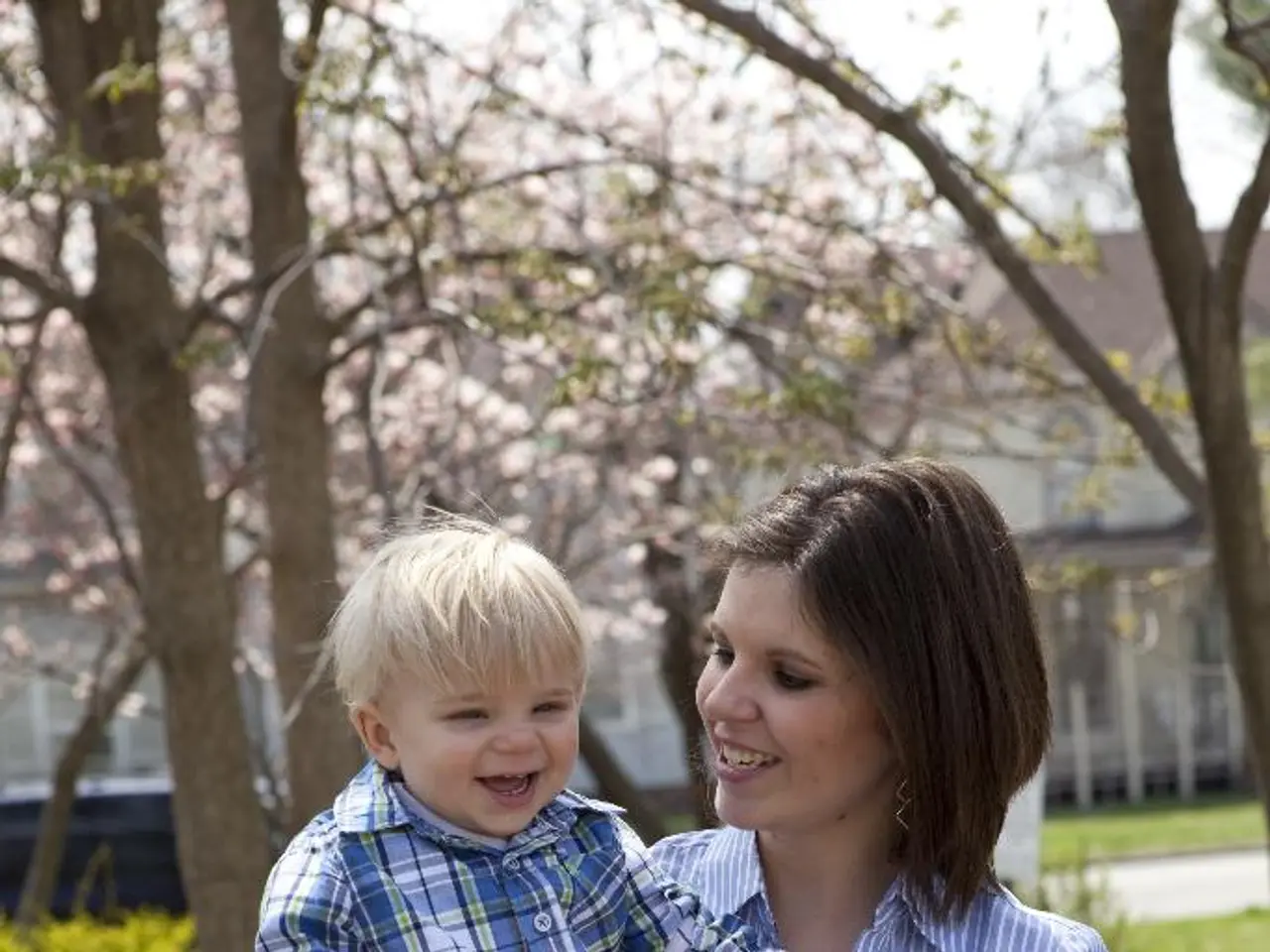Experiencing the Fourth Trimester: Ksenia's Personal Account
In the bustling town of Redcar, Ksenia, a dedicated mother of two, has made walking a cornerstone of her daily life. From the National Cycle Network (Route 1) between Redcar and Marske, to the picturesque Locke Park and the Saltburn promenade, Ksenia's pram-friendly routes have become more than just transportation—they are meaningful parts of her day, providing opportunities for conversation, relaxation, and connection.
Walking with a baby after giving birth offers a host of benefits for new mothers, both physically and emotionally. Gentle walking helps enhance blood flow, which is vital for postpartum healing, and gradually strengthens muscles weakened by pregnancy and childbirth[1]. Doctors often recommend starting walking within hours or days after delivery to reduce the risk of postpartum blood clots[1].
Regular walking can also boost mood and alleviate symptoms of postpartum depression by releasing endorphins and providing gentle exercise[2][3]. It encourages bonding and outdoor time, supporting mental well-being[4]. For Ksenia, walking with her baby has become a special space for bonding between mother and child.
Walking is a safe and accessible form of exercise that can be scaled up gently according to how the mother feels, helping her rebuild strength and stamina without overexertion[1][3]. When combined with pelvic floor exercises, walking supports recovery by reducing risks such as pelvic organ prolapse and urinary leakage[4].
Active travel, including walking, has long been part of Ksenia's routine and identity. Layers and breathable clothing are important for both the parent and the baby during walks. Comfortable shoes are essential, and now, with a newborn in tow, she walks everywhere. Even on short walks, snacks and water should be brought along to keep both parent and baby energised.
Walking can improve sleep and increase energy, even after a restless night. If the baby enjoys the motion, it can often result in a peaceful nap and a calmer afternoon. Short walks create a sense of routine in unpredictable days with a newborn. They can also encourage connection with other parents or the community.
Wearable baby carriers can be beneficial when the baby enjoys being close to the parent. Walking with a baby in a sling or pushing the pram has become Ksenia's go-to activity. It's not just about getting from A to B—it's about the journey, the bonding, and the overall well-being it brings.
Always consult with a healthcare provider about when to start and how to progress safely based on individual circumstances. For Ksenia, walking has been a transformative experience, offering both physical and emotional benefits in the postpartum period.
- Engaging in walking, a form of fitness-and-exercise, can help new mothers like Ksenia improve their family-health postpartum, as it enhances blood flow for healing and gently strengthens muscles.
- Beyond physical benefits, walking also promotes mental-health and well-being, boosting mood and alleviating postpartum depression symptoms by releasing endorphins.
- Nutrition plays a role in maintaining energy levels during walks, so it's essential to bring snacks and water for both the parent and the baby to ensure they stay energized.
- Women's-health is closely tied to walking, as it supports recovery by reducing the risks of pelvic organ prolapse and urinary leakage when combined with pelvic floor exercises. Wearable baby carriers can be beneficial for mothers who prefer to walk with their babies close to them.




